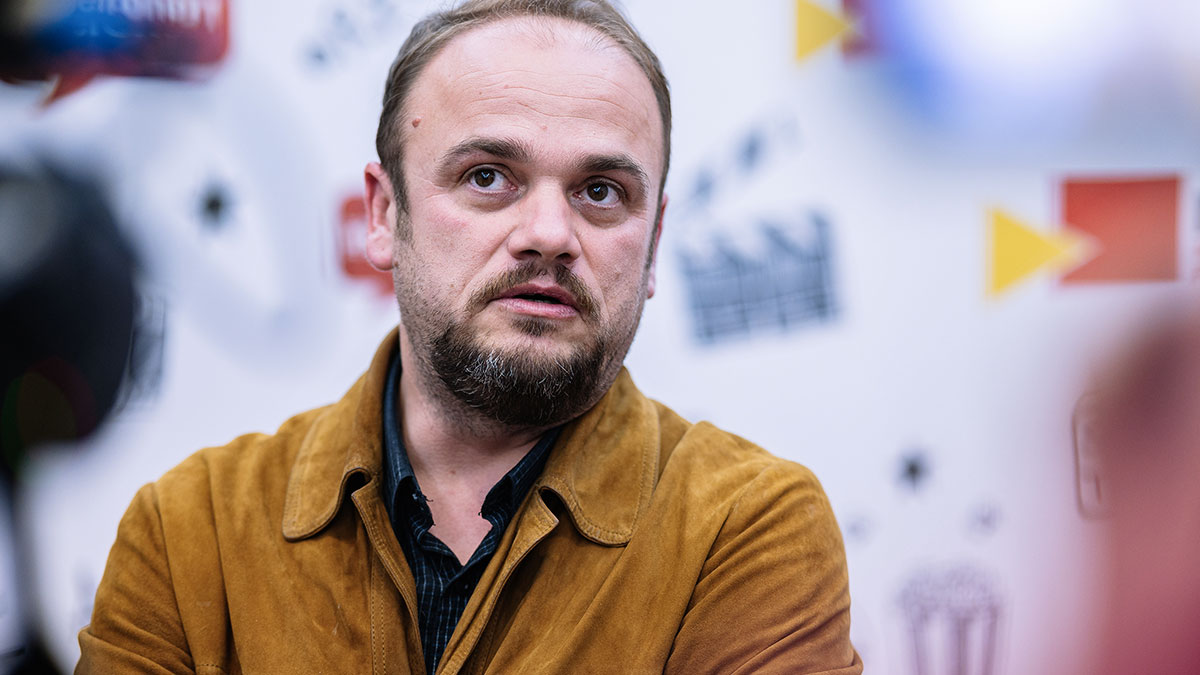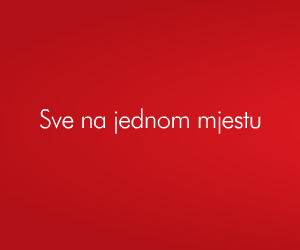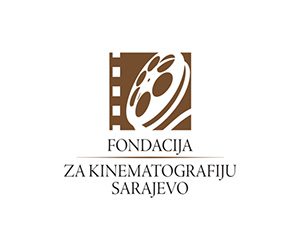
04/10/2023
We in Herzegovina Stand Equally Next to Productions in the Region
Director Tomislav Topić talks about the 24th Mediterranean Film Festival, which will be held in Široki Brijeg from October 10 to 14, about a large number of films by local authors and about the film "The Sculptor from Grab", which he directed himself. , which will premiere during the festival.*The boundaries are moving, and so this edition of the Mediterranean Film Festival brings a record number of submitted films. In addition to Spanish domination, there are a significant number of domestic authors in competition. What does the competition program bring this year?
Films that compete for the jury awards are divided in two categories, short and feature-length documentaries. The festival is not determined in terms of topics, but there are mostly stories that bother the ‘little man’ today at all levels of living, from migrant hardships to facing their own ‘demons’ of the past.Through film narrations, most authors point to the necessary awakening of awareness about everything, so that every film viewer can think about who we are, where we are going and what might happen to us. The program in the competition is strong as usual, both in terms of the selection of different topics and in terms of aesthetics, that is, the art of filming.
How would you present this year's MFF in terms of contents?
In terms of contents this festival is similar to previous ones, with the fact that this year’s edition can boast about a lot of titles by domestic, local authors. MFF has directly and indirectly influenced the education and production of some films, so we are proud to have become a part of the cinematography of Bosnia and Herzegovina through great efforts and to equally stand next to productions in the region.
Domestic film will certainly be the main theme of this year's festival. Namely, in the 'Home Authors' program you are screening ten films.
We don’t have enough space to present each film, but already experienced local authors demonstrate the art of filmmaking through the selection of topics, structuring films on a creative and visual level into a strong whole of a film work. Using various techniques in animation, they achieve a magical world of film in an effort to lead the viewer to a new world of artistic juggling on film through artistic storytelling. In the classic feature-film form, the directors sometimes discreetly, and sometimes directly, talk about topics that are our everyday life. Directing films using tried and tested methods, they opened new topics for discussion, pointing out the imperfection of the individual, played again by the local actors. In the documentaries by domestic authors, the emphasis is on biographical films that sublimate the life and work of the protagonists. Whether it is a TV format or a cinema, festival films, they are equally significant because the "heroes" were treated for the first time in a film work and as such remain a cultural heritage for all of us. Local documentary filmmakers also deal with the difficult destinies of people who lived through the hell of war and whose words, after 30 years, are absorbed by the same difficult feelings as they were during their tortures.
Is there a title that you wanted to show at the festival but didn't make it?
I will refer to home authors again. The new films 'Hasan's Wars' and 'Forgotten Stations' are in post-production, which were not finished until this edition of the festival, and we wanted to have them as well. There is currently no title that would stand out outside of domestic production, but I would like some films from the region, which have been awarded at the relevant festivals, to apply for our competition program. It's always like that, sometimes you have an exclusive, and sometimes you don't get a movie that you were expecting.
You are also the author of one of these ‘home‘and it is a biographical documentary ‘Sculptor from Grab’. Why this film?
There are several reasons. Note that this is a biographical documentary about academic sculptor Stjepan Skoko, which I started to work on three years ago. Skoko is an interesting person and, as his professor Stipe Sikirica says in the film, he has always had courage, i.e. courage for life and artistic work. This was exactly what I also felt about him and we made this film. One of the reasons is also that I want the artists from Herzegovina to be recorded on film, because in a way, that task belongs to the few of us who are engaged in film in Herzegovina. We succeeded with a small budget, but with the crew that cares about these kinds of stories. I hope that this is the beginning of a series of films about artists from Herzegovina.
How would you evaluate the current state of the domestic film industry? What are the biggest challenges?
There are constant problems, which are not being solved, something constantly gets complicated, and yet on the other hand, films that win the most prestigious awards are made and the best festivals in the region are organised. It's hard to explain, maybe we function better with this situation in terms of financing film production and support for other film activities. Perhaps the charm and struggle would be lost if everything functioned as it should, that's our mentality. It is a challenge to obtain conditions for people to work normally in the film industry, because there aren’t many of us and it is not a lot of money to cover all the producers’ requirements.
The Mediterranean Film Festival is having its 24th edition, as well as the previous one, in the 'boundaries' of the Borak cinema hall. Are you satisfied with the way the festival took place last year, and what made you decide to take this turn?
There are several reasons for changes at MFF. In Herzegovina, everything takes place over the summer, so we moved in the fall. The tenders from many institutions in the field of culture are not concluded yet, and the festival budget is somehow defined at this time of the year. Also, the students of the Academy of Fine Arts in Široki Brijeg are here, and we know that our Academy has a film department too. In terms of infrastructure, it is much easier to work in this way than when you have to build a cinema and prepare and equip other locations for the needs of the festival in the summer time. We are mostly satisfied because, in terms of film programs, we have remained at the same level as before and introduced some novelties such as new awards, etc.
What is the hardest thing in organisation of a festival like this one?
The most difficult thing is to finance the festival, and it is also difficult when someone from the organization leaves you for understandable private reasons, so you have to fill in for them and look for professional people to replace them. But we have almost a quarter of a century of experience, so we have learned to overcome obstacles and I can really say, almost without a mistake, we completed 23 festivals.
Many directors faithfully return to the Mediterranean Film Festival with their new films. How do you feel about it?
This is very nice, and there I see that MFF is a strong reference in the world of documentary film festivals.
There is also a larger number of domestic audiences watching the documentary, is that also a confirmation of quality?
The documentary is equal to the feature film, e.g. the winner of this year's Pula Film Festival is a documentary film. I think the audience also recognizes that and what they can see here, it is difficult to find on other platforms or they will have to wait for a few years to see such films. MFF is truly the place to see unconventional and excellent new documentaries.
*Text published in Večernji list


